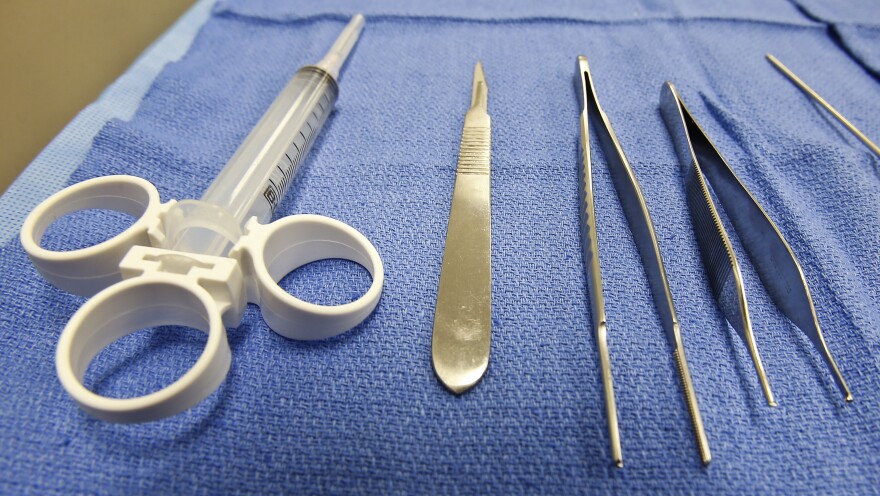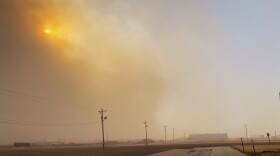GARDEN CITY, Kansas — In 2017, an estimated 38,000 kids in Kansas didn’t have health insurance. That’s according to data recently released by the Kansas Health Institute.
The highest rates of uninsured kids live in the western and southwestern quadrants of the state, but large numbers of uninsured children also reside in the state’s more populous counties. The lack of Medicaid expansion could be contributing to the issue, but experts say it’s likely not the only reason.
Hina Shah, a senior analyst at the Kansas Health Institute*, said the nonprofit plans to look at the demographics of the uninsured children.
“Is it a certain race and ethnicity? Is it a certain socioeconomic class? Is it by family income? Is it a certain age group — is it the zero to five group or are (the children) a little older?” Shah said.
For the first time, KHI calculated that approximately 25,000 kids are eligible for the state’s Medicaid program, KanCare, and most of them live in western Kansas. Shah said research shows rural areas can be difficult for insurance navigators and outreach specialists to cover.

Kendal Carswell is a social worker, addiction counselor and professor at Fort Hays State University, and has worked with uninsured people in southwest Kansas. In his experience, kids without insurance may come from families who slip between the cracks; that is, they earn too much to qualify for Medicaid but not enough to purchase health insurance.
“There are a lot of working poor … because the threshold for where you're considered poor … is so low that you can earn almost nothing and can't get assistance,” Carswell said.
He added that sometimes undocumented immigrants whose children are eligible for KanCare forgo enrollment out of fear that their personal information could be shared with U.S. Immigration and Customs Enforcement.
Carswell has walked a few refugees through the federal health insurance exchange website, but said facets of health insurance like paying for monthly premiums and deductibles raised even more questions from people who are new to the U.S. health insurance system.
“And to them, it was like, well, a scam,” Carswell said.
In rural Sheridan County, an estimated 17.5% of children are uninsured. Becky Mullins, an insurance biller at Sheridan County Hospital, said she also sees a lot of people who are underinsured.
“We have a lot of people that bought into the ACA (Affordable Care Act) — the high deductible plan. And because of that they've got to pay $5,000 out of their pocket before their insurance is going to kick in,” Mullins said.
For families who can’t afford the out-of-pocket cost, Mullins said, the hospital has a financial assistance program that both uninsured and underinsured patients can apply for.
But Mullins said more people may have coverage in 2019 because over time people have learned more about the rules and regulations of the federal health insurance program.
“The process has evolved, (and has) kind of gotten all the bumps worked out,” Mullins said. “I do see uninsured families, and generally, I don't see them go uninsured for long periods of time.”
KHI calculated the statewide data by using numbers from the U.S. Census Bureau’s Small Area Health Insurance Estimates, Shah said.
“So thinking through partnering with local organizations, local coalitions and maybe thinking through strategies like that to facilitate enrollment may help so that’s another area to explore,” Shah said.
*The Kansas Health Institute receives support from the Kansas Health Foundation, a funder of the Kansas News Service.
Corinne Boyer covers western Kansas for High Plains Public Radio and the Kansas News Service. You can follow her on Twitter @corinne_boyer or or email cboyer (at) hppr (dot) org. The Kansas News Service is a collaboration of KCUR, Kansas Public Radio, KMUW and High Plains Public Radio focused on the health and well-being of Kansans, their communities and civic life.
Kansas News Service stories and photos may be republished by news media at no cost with proper attribution and a link to ksnewsservice.org.







